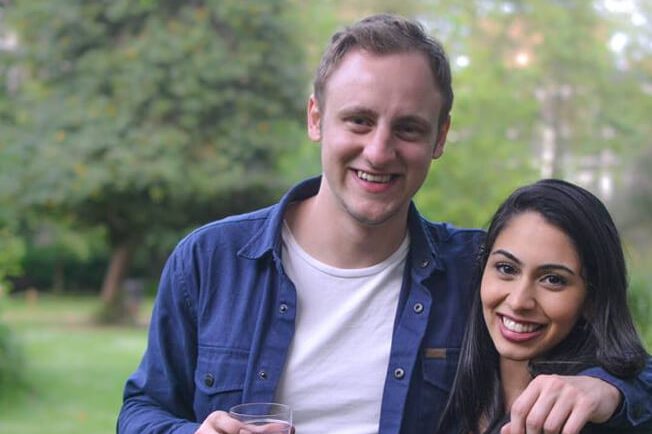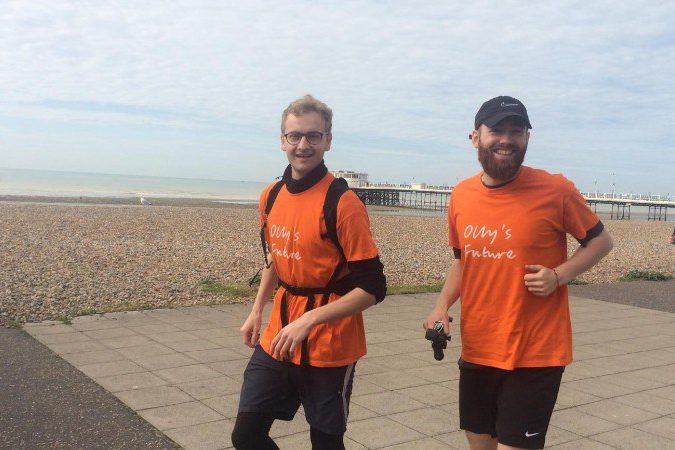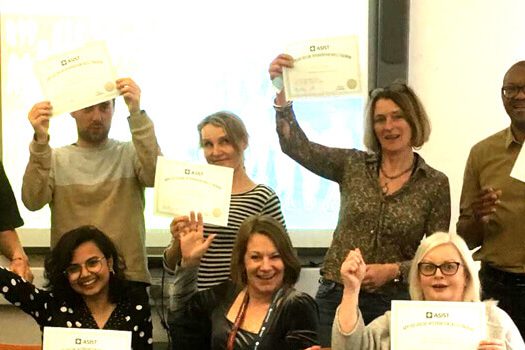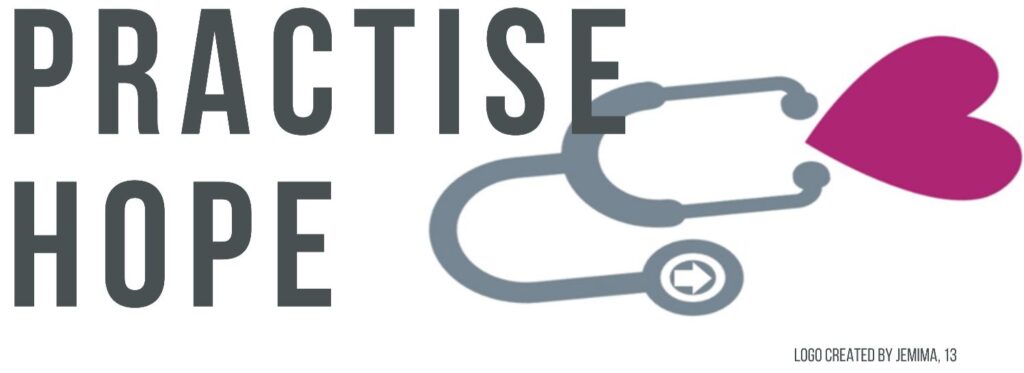
A primary care initiative for 10 – 25 year olds who are thinking of suicide or self-harming.
This pioneering initiative is based on the PACE setter model, a development programme for primary care to lead the way in changing culture and improving services around mental health in practices. Co-production is central to the project, so children and young people, their families, other partners and surgery staff are involved in creating new ways of working. Even the Practise Hope logo, above, is the result of a CYP engagement event with 13-year-old Jemima from Brighton winning the design competition.
Practise Hope focuses on children and young people, as well as the wellbeing of the practice staff themselves from GPs and nurses to receptionists and admin staff. The key to success is creating a co-produced Action Plan which is sustainable.
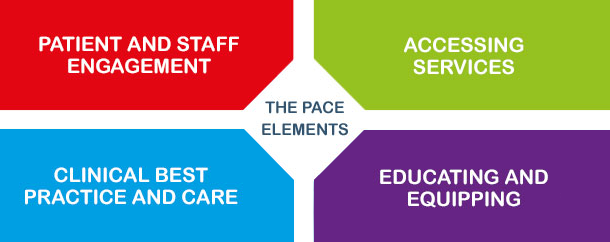
What does Practise Hope involve?
All GP practices who sign up to Practise Hope complete five key activities:
- A baseline survey – measuring practice staff competence and confidence in supporting children and young people with thoughts of suicide and who self-harm.
- A self-assessment audit of your practice’s safeguarding procedures (all ages) based on CQC regulation 13.
- A staff wellbeing survey – with at least half of all your staff – clinical and non-clinical, around their own wellbeing and confidence with children and young people.
- A children and young persons’ wellbeing survey – with at least 1% of your (target) population in the age ranges of 10-15 years and 16-25 years of age.
- The creation of an Action Plan co-created with staff and CYP.
All GP practices who sign up to Practise Hope receive training:
Suicide Prevention Training is delivered on-line by trainers, some of whom are clinicians themselves, as part of the Practise Hope initiative –
Clinical Staff Training – 60 mins, for up to 20 participants. It is expected for a Practice Lead and GPs and nurses from the same surgeries to attend this training scheduled during lunchtime.
Non-Clinical Staff Training – 90 mins, for up to 20 participants; ideally receptionists, medical secretaries and administration staff from the same surgery to attend.
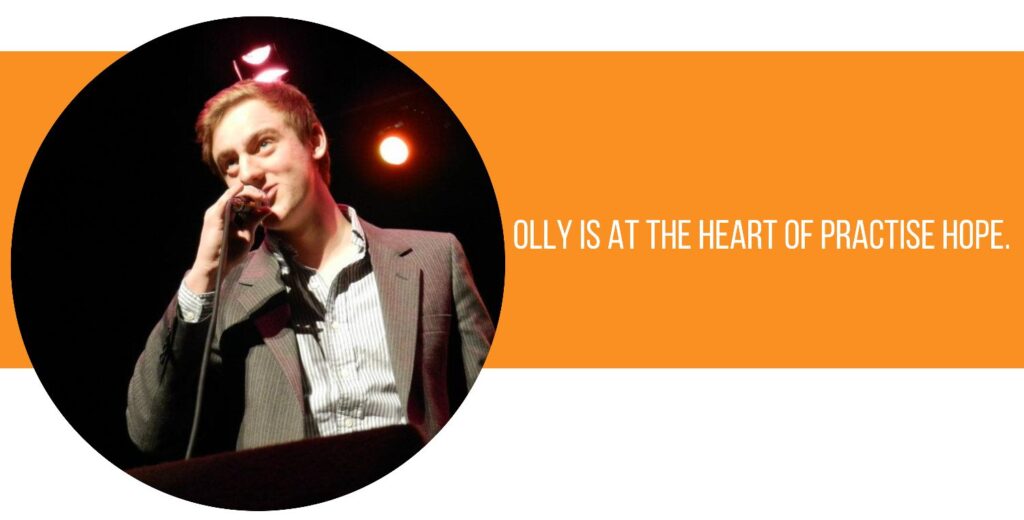
Background
The Practise Hope pilot ran from February 2019 to September 2020 and received £200,000 funding from Health Education England. It was delivered by practices in the Dartford area in Kent, in Brighton and Hove, Sussex and the Woking area of Surrey. It was a collaboration between Health Education England, Sussex Partnership NHS Trust, Mind and Olly’s Future.
Findings from this pilot showed that some GPs did not feel equipped or confident to support children and young people who self-harm or have thoughts of suicide. It also found that young people did not know they could go to their local surgery for help with mental health issues.
Ann Feloy, Chair of Olly’s Future, worked as Patient Carer Lead, bringing her personal insight of losing her son Oliver to suicide when he was 22 years old. She developed Practise Hope with Clinical Lead Dr. Sam Fraser a clinical psychologist who based her Dharzi Fellowship on this initiative.
Ann said: “So much more could have been done to help my son. For example, small system changes, such as asking if there was a trusted adult the GP could contact, and flagging up on the computer system that this was the first time Oliver had been prescribed anti-depressants and he was under 25 years old. Practise Hope is my way of ensuring other parents are spared the devastation of losing their son or daughter.”
In October 2020, the Samaritans published their report “Pushed from pillar to post: Improving the availability and quality of support after self-harm in England”.
The report found that people with lived experience of self-harm said GPs had two key roles in providing support:
- Assessing needs and providing a gateway to services that can address the underlying reasons for the self-harm
- Providing an accessible, ongoing source of support in times of stress.
It is estimated that around one-third of those who die by suicide in England were in contact with primary care services prior to their death but were not receiving specialist mental health support. Supporting practices to strengthen their responsiveness to young people struggling with suicidal thoughts and self-harm is therefore vital.
How to sign up to Practise Hope
If your NHS trust, local authority, primary care network or local surgery is interested in running Practise Hope, please email [email protected] for more information.
We would love to hear from you.
Additional Information
Doctors’ Support Network
Support for doctors – DSN has an online, anonymous, confidential Support Forum for Full and Student members of DSN. DSN is FREE to join with a suggested donation.
Click here to Join DSN
